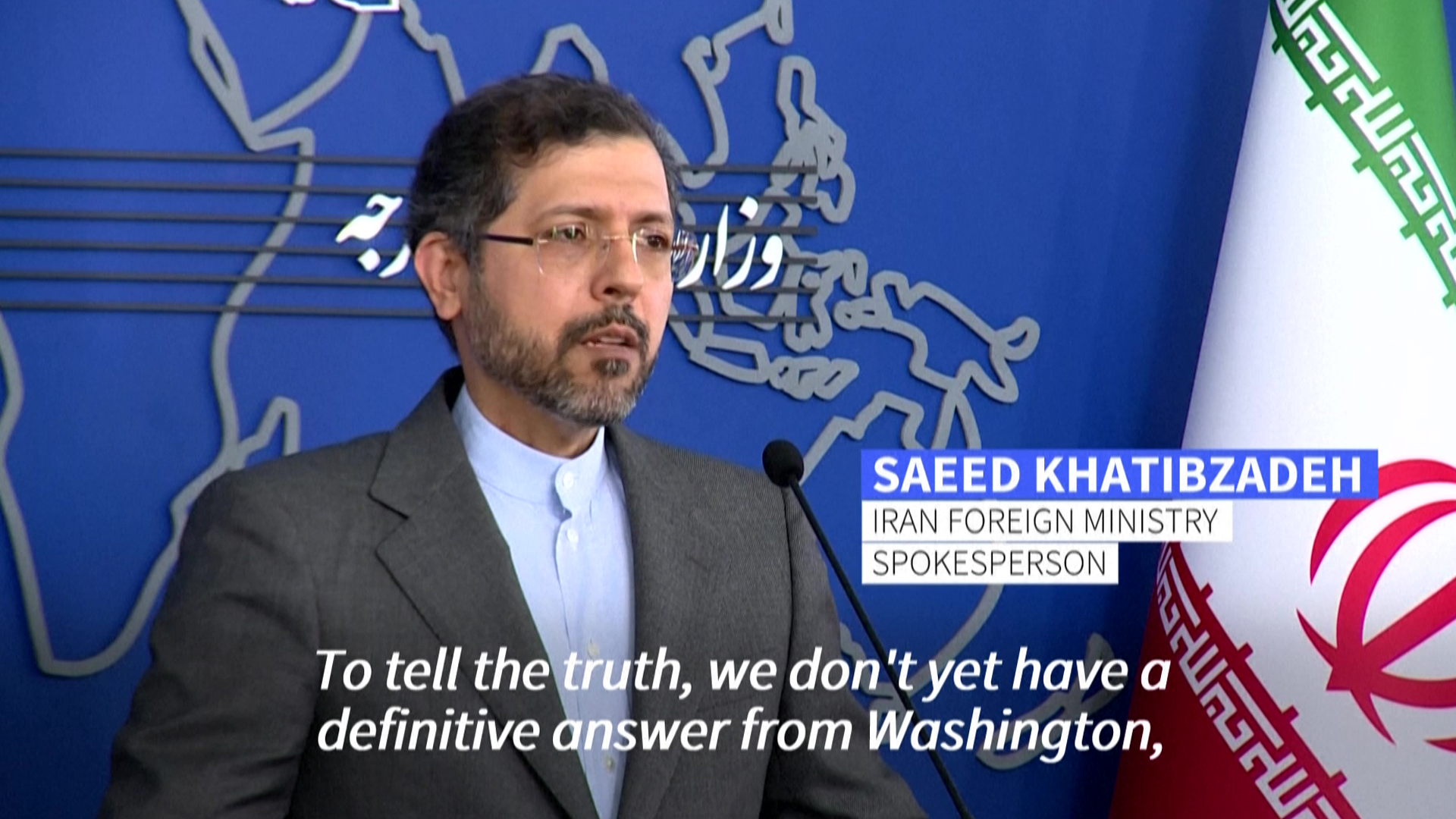
WASHINGTON, United States (AFP) – The United States and Iran blamed each other Monday for a weeks-long impasse that has held up a return to the 2015 deal that sought to prevent Tehran from developing nuclear weapons.
Iranian foreign ministry spokesman Saeed Khatibzadeh said that the country’s negotiators would not return to Vienna, the site of the year-long talks to restore the Joint Comprehensive Plan of Action (JCPOA), until Washington settles outstanding issues.
“We will not be going to Vienna for new negotiations but to finalize the nuclear agreement,” Khatibzadeh told reporters in Tehran.
“If Washington answers the outstanding questions, we can go to Vienna as soon as possible,” he said, without explaining the specific questions that remained.
“At the moment, we do not yet have a definitive answer from Washington,” he said.
Push back
But in Washington, Khatibzadeh’s State Department counterpart Ned Price pushed back, suggesting it was Tehran that was not giving way to make a deal possible.
And Price warned that time was running out, as Iran gets closer and closer to the nuclear “breakout” point when it has achieved the capacity to construct a nuclear weapon.
“Anyone involved in the talks knows precisely who has made constructive proposals, who has introduced demands that are unrelated to the JCPOA, and how we reached this current moment,” Price said.
“We still believe there is an opportunity to overcome our remaining differences,” Price said.
He said Iran’s continuing nuclear development has put it within “weeks” of breakout, which would nullify the benefits of a new agreement.
“Iran has been able to shrink that breakout time from where it started to a point where we can measure it in weeks rather than months. To us that is unacceptable as a long-term proposition,” Price said.
Tehran has been engaged in long-running negotiations in the Austrian capital to revive the JCPOA, with Britain, China, France, Germany and Russia directly, and the United States indirectly.
The JCPOA gave Iran sanctions relief in exchange for curbs on its nuclear program to guarantee that Tehran could not develop or acquire an atomic bomb — something it has always denied wanting to do.
But the United States unilaterally withdrew from the accord in 2018 under then-president Donald Trump, who reimposed biting economic sanctions that prompted Iran to begin rolling back its own commitments.
‘Ill will’
Last year, newly elected President Joe Biden pledged to revive the JCPOA, blaming Trump for allowing Iran to drop its commitments to the agreement.
In the past month, the negotiations — in which the United States communicated with Iran indirectly through other participants and the European Union — have brought the parties close to an agreement.
But the talks halted last month.
Among the key sticking points is Tehran’s demand that Washington remove from the Islamic Revolutionary Guard Corps, the ideological arm of Iran’s military, from the official US list of terror groups.
US officials privately say that dropping the “Foreign Terrorist Organization” designation would have little real effect on the IRGC, because the group is under a long list of other sanctions that will not be lifted in any deal.
But conservatives in US Congress oppose any move to drop the designation, vowing to spoil any revived JCPOA.
Both sides hold out hope for an agreement.
On Sunday, Iran’s Foreign Minister Hossein Amir-Abdollahian said an agreement was “close” during a phone conversation with UN Secretary-General Antonio Guterres.
“We have passed on our proposals on the remaining issues to the American side through the EU senior negotiator, and now the ball is in the US court,” Iran’s top diplomat said.
But Washington continues to add pressure on Iran.
Last Wednesday, the US Treasury announced sanctions targeting several entities it accuses of involvement in procuring supplies for Iran’s ballistic missile program.
A day later, Khatibzadeh said Washington’s imposing fresh sanctions on the Islamic republic showed its “ill will” towards Iran.
On Monday, he leveled further criticism at the United States.
“Today, in the final phase, the United States seeks to deprive Iran of the economic benefits of the agreement,” Khatibzadeh said.
© Agence France-Presse








